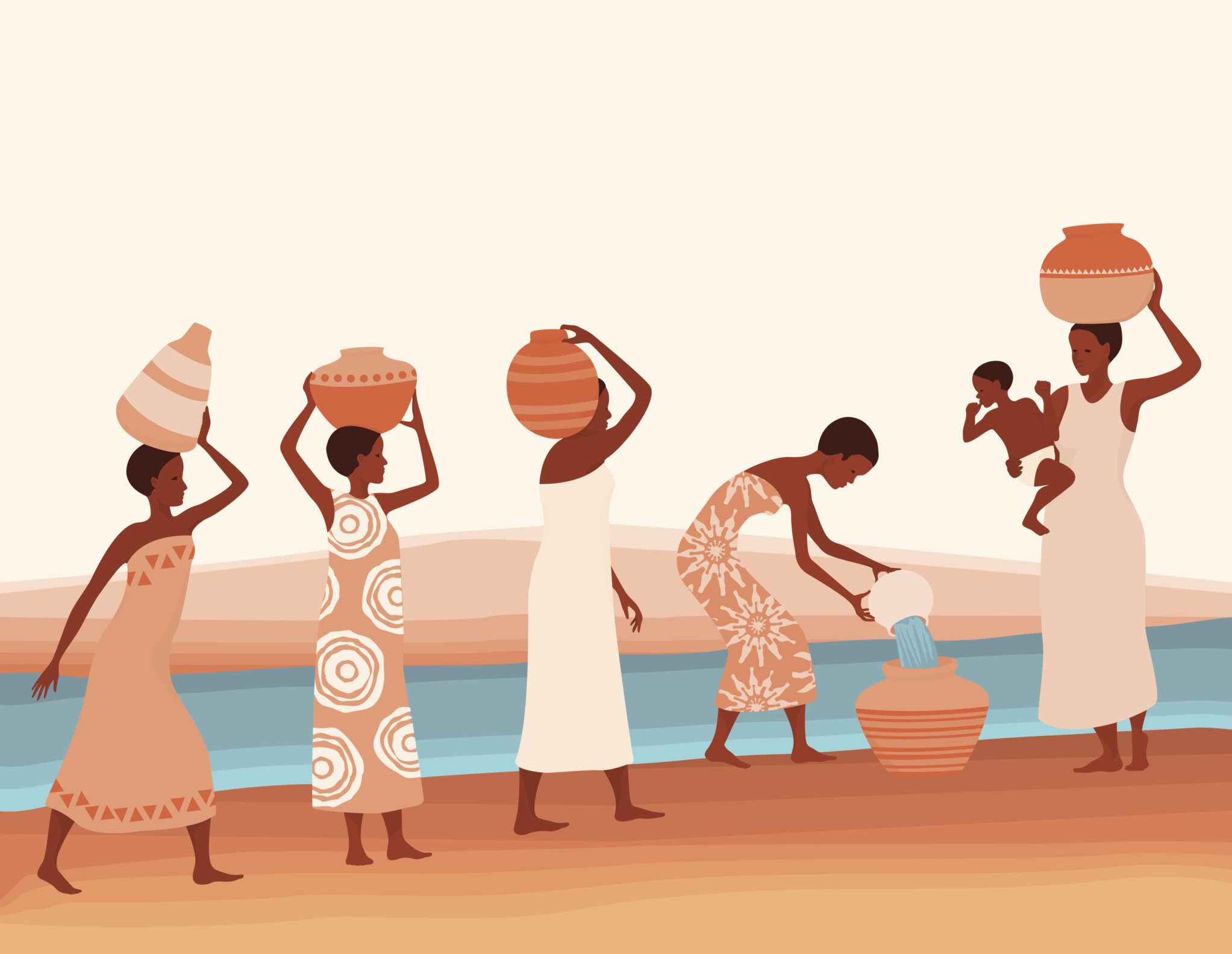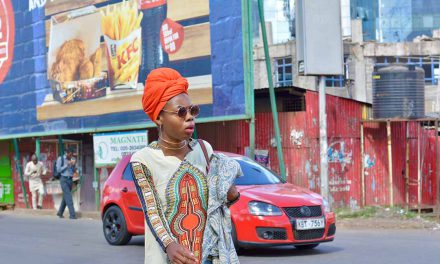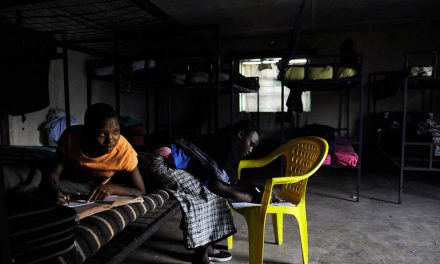The struggle for water in Malawi’s drought-stricken eastern region has hit women the hardest, destroying marriages and creating community tensions
It’s the hot, dry season in Malawi and the women of Chibisa village in the traditional authority of Jenala in Phalombe, located in Malawi’s eastern region, are distressed. Their problems are worsening; the water points they have been relying on are disappearing one by one. As the dry season rolls on, they find themselves having to walk to more distant water points.
The village is set in grey-clay soil that looks as if it might once have been swampy. But water has become scarcer in recent years and residents have been forced to dig shallow wells for themselves. Women, often carrying children, can be seen carrying litre buckets or jerrycans from some of the DIY wells.
Estelle Likoma, a 37-year-old resident, says water scarcity has been a long-standing problem there, but adds that the situation is now becoming critical. “Women have to fetch water for domestic purposes while their husbands wait at home after a day’s hard work,” she told Africa in Fact. “It is culturally unacceptable for men to be fetching water. It’s a woman’s show.”
Most women prefer to go to the nearest available well in the evening, as they have to do household chores, including working in their gardens, during the day. Generally, they leave their homes to fetch water at around 7pm, but due to long queues at the waterholes, some return home as late as 4am the following day.
Moving about at night, Likoma says, exposes them to all sorts of danger. There have been “countless” incidents of women being attacked by dogs and stung by scorpions, while others have suffered injuries walking in the dark. The village has no electricity and many women have only the moon or cell phone torches to rely on.
Some of the men, meanwhile, don’t believe that their spouses spend the night queuing for water, with the result that the water scarcity problem is threatening marriages. Likoma says she has had to resort to mediation by third parties to resolve the marital issues caused by the amount of time she has to spend in search of water.
“I honestly don’t have peace of mind in my (own) home. My husband is always annoyed when I tell him that I’m going to fetch water. He suspects I’m having an affair,” she says.
With everything she has to do in the household and garden, Likoma is constantly exhausted. Along with other women, she has sometimes had to snatch some sleep in the shade of a tree while waiting for her turn to get water.
Another woman from the district, Fanny Masika, 42, faced a similar problem, and was divorced two years ago, in early 2016, because of it. Her former husband told her that she was offering “too many excuses” about the time she was spending fetching water at night. She would leave her house after supper and return in the early hours of the following day. There was no choice; her family needed water. “He needed water to bathe and to drink, yet he couldn’t be patient with me,” she told Africa in Fact.
Masika still has to follow the same routine, but the waiting times at water wells are longer. Until about a year ago, the village had one reliable well, but 10 other villages also depended on it. Both Likoma and Masika found that they had to wait longer for their containers to fill, and then the well dried up.
When articles started appearing in the media in October 2016 about the village’s plight, an Islamic charity organisation, the Islamic Relief, had two boreholes dug, but they were unreliable. Sometimes they would produce a small amount of water, but then it would be too salty, or the boreholes would simply go dry.
The women of the other villages in the district – Chibisa, Chirombo, Namatinkha, Mwerikhomo, Mzadwaza, Chitekesa, Nakhaonga, Mtikwa, Nayuma and Mmeza – have suffered similar problems for years. Not unexpectedly, the water shortage also generates conflict between the women who have to go and fetch it. The village headman of Chibisa, Charles Isa, 42, confirms that he has had to mediate in numerous marriage disputes that have arisen because of the water shortage.
Women fight over water every day, and marriages are threatened (by the problem),” he told Africa in Fact. Between September and October 2016, he says, he dealt with 10 cases of quarrels between women over water and two divorce cases related to the water crisis. Two marriages in the village have ended because of the same problem. Politicians have also used the water problem as a campaign tool to woo voters, with no action after elections, he says.
There is one borehole in the village, at Mianga primary school, but access is restricted as communities are not allowed to fetch water during school hours. Even so, it is in heavy demand after the school has closed. The treasurer of the Mianga school borehole committee, Dyson Mmeza, says the borehole regularly breaks down, due to over-use, and the committee usually struggles to raise funds to repair it.
“We have tried to introduce a fee per bucket or gallon but it has not worked out,” he says. “People don’t have money to buy water.” He adds that the committee has had training on how to maintain the borehole, but they also usually do not have money to buy spare parts.
Phalombe’s district water officer, Boston Tambala, confirmed that the district has a water problem. Among other things, he says, this is because the district often experiences floods, which damage water pipes or even wash them away. “It gets worse in the months of September to early November, the dry, hot season,” he told Africa in Fact. The council has drilled several boreholes but the water yield has been either salty or inconstant. The water table itself may have sunk, he says.
The district council does plan to try to rehabilitate the decaying water pipe system, to bring water in from further away. The rehabilitation is being funded by the African Development Bank (AFDB) through the ministry of agriculture, irrigation and water development.
These funds relate to AFDB funding for a Malawi government project, Sustainable Rural Water and Sanitation Infrastructure for Improved Health and Livelihoods, the total cost of which is projected to be $39.39 million. The project is being implemented in five districts, one of them Phalombe.
Phalombe’s environmental district officer, Fred Mphalo, says the area has seen considerable environmental degradation, which has made it prone to floods. In the district, it is the women who feel the effects most severely, he confirms, because they now have to walk long distances to fetch water or firewood.
The Malawian government’s National Climate Change Management Policy acknowledges that women are the most impacted by the adverse effects of climate change because they are typically responsible for collecting water and firewood, as well as providing food for their households.
Regional Programme Director for Leadership for Environment and Development in Southern and Eastern Africa (LEAD-SEA) Malawi, Professor Sosten Chiotha, notes that women are already weighed down by their traditional roles in the household and in food production. Climate change just makes things worse. “The effects of climate change are exacerbated by poverty,” he told Africa in Fact. “That is why poorer countries suffer most, and within countries, why poorer communities suffer more.”
Malawi is a mainly agricultural economy, and therefore dependent on rainfall. Trócaire, an Irish Catholic development organisation, says 90% of Malawi’s population depends on rain-fed agriculture.
But in recent years, the country has experienced natural disasters such as floods and droughts. “In Malawi, projected water supplies are affected by increases in temperature and local variability of precipitation. This is compounded by rapid population growth, which leads to increased water demand,” the organisation says.
Phalombe is also vulnerable due to a high level of deforestation that has rendered the district prone to natural disasters, including floods and strong winds. In 2018, the October rains were accompanied by winds that had damaged 21 schools within a few days. Moreover, the lack of trees in the district means that the soil does not retain water for irrigation and wells are not refilled.
Chiotha says that the country needs to introduce an effective catchment-management system aimed at recharging underground reserves but at the same time maintaining sources of surface water.
The increased availability of water would contribute to healthier vegetation, which would aid the retention of rain water. He also suggests that the introduction of water-harvesting technologies could be part of the solution to Malawi’s water scarcity.
These would include installing water tanks on roofs of houses, drainage systems to conduct rainwater to man-made dams, and using box ridges in gardens to aid in water retention.
A senior lecturer in the Department of Horticulture at Lilongwe University of Science and Technology (Luanar), Doctor Wezi Mkwaila, says Malawian women are well-placed to be effective champions of tackling climate change because they are so vulnerable to its effects. “Women are well-placed to spearhead climate change mitigation programmes in Malawi because of the drive they already have in them of getting things done,” she says.
Catherine Chiwaya, the Phalombe district coordinator for Coalition for Women Farmers, says her organisation is working to motivate women to participate in climate-change adaptation programmes. “We are working with women to plant more trees along river banks and other places to restore the vegetation that was there before,” she told Africa in Fact. But, she adds, her organisation may be unable to sustain the programmes due to funding challenges.
The chairperson of the parliamentary committee on natural resources and environment, Victor Musowa, says the committee is working with the ministry to implement the National Climate Change Management plan.
“The policy affirms government’s commitment to fully addressing climate-change issues to reduce the vulnerability of its people, ecosystems and socio-economic development to the effects of climate change through adaptation and mitigation,” he told Africa in Fact. The ministry recognised that women were most affected by the effects of climate change, he added.
But an up and coming political group, United Transformation Movement (UTM), led by the country’s vice president, Saulos Chilima, says it is not satisfied with the way government is dealing with climate change. “Government has well-formulated policies and documents, which it is failing to fully implement,” UTM spokesperson Joseph-Chidanti Malunga told Africa in Fact. “If Malawi had stuck to these documents, we wouldn’t have got to where we are today.”
Malawi has committed itself to achieving the United Nations’ Sustainable Development Goals (SDGs). The SDGs consist of 17 aspirational global goals and 169 specific targets that measure countries’ progress. Goal six of the SDGs calls on all nations to ensure all its citizens have access to water and sanitation by 2030. But that seems a far-fetched dream for Malawi.
Josephine Chinele is multi-award-winning international journalist. She has worked as a news, features and investigative journalist for newspapers, radio and television platforms in Malawi, Tanzania and South Africa. Josephine has also been awarded several prestigious journalism fellowships in the area of HIV and AIDS, health and human rights among others. She is also a biomedical HIV prevention advocate.













